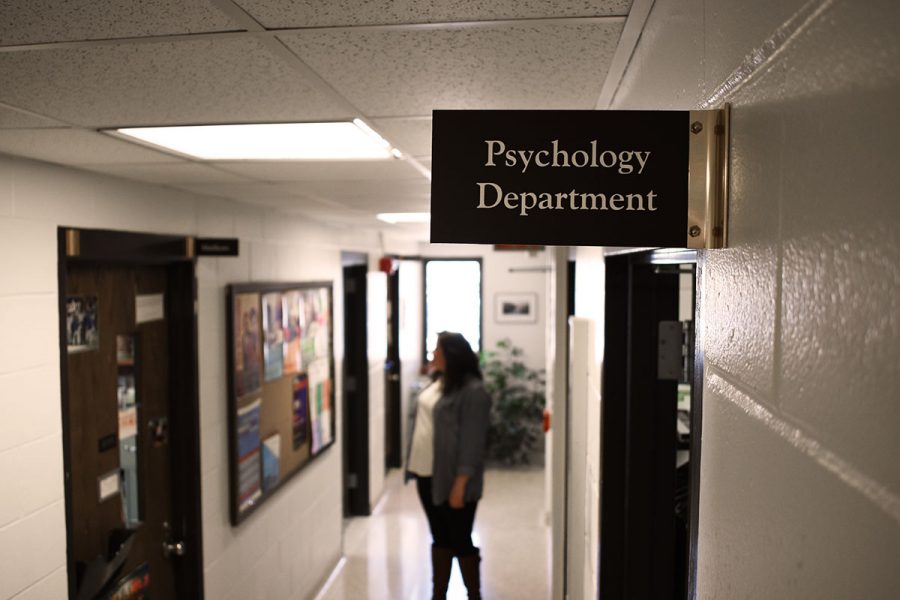Neuroscience major coming to UW-Eau Claire
Student interest in the major was ‘primary driving factor’ behind push for new degree
More stories from Rachel Helgeson
Photo by Rachel Helgeson
The psychology department serves as home base for the new major, but it is connected to six different departments in total.
Students at UW-Eau Claire now have the opportunity to declare neuroscience as their major in the fall after the UW-System Board of Regents approved the idea at its February meeting.
“It was unanimously approved,” said Doug Matthews, the head of the psychology department. “It’s been a process that’s actively taken about two years. The primary driving factor was just student interest (and) the support and efforts from Provost (Patricia) Kleine.”
Matthews said there’s a need for people who thoroughly understand the nervous system because the average age of the population is increasing.
“Neuroscience is one of the most rapidly-growing career paths,” Matthews said. “In the next 10 years it’s going to increase by 25 percent in the job market.”
Daniel Janik, associate professor of biology, said he thinks “we’re really in the midst an exciting period in neuroscience discovery that is likely to continue for quite a while.”
Janik will be teaching lectures and laboratory sessions for upper-level students enrolled in the program, as well as a beginner’s course about the brain which is co-taught with Matthews and associate professor of psychology David Leland.
To prepare students for the progressive field of study and career path, the new major will cover a wide variety of topics.
The interdisciplinary major, which will consist of 60 credits, will be housed in the psychology department but the degree plan comprises courses from various departments. Besides psychology, these include biology, math, philosophy and chemistry as well as electives through music and communication sciences and disorders.
“Hopefully we train students well for whatever direction the field takes us,” Matthews said.
Matthews said he predicts about 20-25 students will declare the major this coming fall.
The university already offers neuroscience as a minor and will not have to adjust or add to their course offerings to accommodate the major.
“All the classes in the major were already taught at the university and frequently they were often over-enrolled,” Matthews said.
Matthews said UW-Eau Claire will be able to provide “meaningful, high-impact practices” in the new major because of the quality of the university’s student and faculty.
“Eau Claire provides a unique opportunity where you have excellent students and excellent faculty with enough resources,” Matthews said.
Amelia Schneider, a second-year student who began her college career in nursing, switched her major to psychology and added a neuroscience minor in the spring of 2017 after taking a beginning psychology course with Matthews.
This fall, she will declare neuroscience as her major.
Schneider said her new plan will “better suit her” because of her interest in psychology. She said she thinks it will be a great degree plan which also allows “access to fun classes like music and philosophy”.
“The psychology major with a neuroscience minor is restricting in that the psychology major has core classes that may not be as applicable to someone who wants to pursue neuroscience in their future,” Schenider said. “They (neuroscience majors) get to spend more time in the ‘hard sciences’ (biology, genetics, molecular biology, chemistry, psychopharmacology).”
Schneider said she plans to pursue her master’s degree and Ph.D. in a neuroscience-related field.
Students who earn their undergraduate degree in neuroscience may go on to graduate school for medical or dental fields. Graduate students with a neuroscience degree may pursue careers in pharmaceutical sales, medical equipment sales and medical engineering.
Matthews said he can’t predict how the major may evolve over time because of the progression of technology and new discoveries in the field. He said he is hopeful that about 100 students will declare a neuroscience major in the next 3-5 years.

